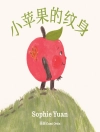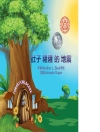In ‘Timothy’s Quest, ‘ Kate Douglas Wiggin weaves a poignant tale set in a quaint New England village, reflecting the themes of childhood innocence and the bittersweet passage of time. The narrative follows young Timothy, a sensitive and imaginative boy, as he grapples with the complexities of joy, sorrow, and the search for belonging. Wiggin’s lyrical prose and vivid descriptions ground the reader in this pastoral setting, while her skillful characterization ensures that each figure resonates with authenticity and depth. This novel, often regarded as a cornerstone of children’s literature from the late 19th century, deftly navigates the sociocultural landscapes of its time, highlighting the educational ideals prevalent in American society. Kate Douglas Wiggin, an influential figure in children’s literature, established her reputation not only as an author but also as a pioneer in early childhood education. Her commitment to creating enriching literary experiences for children was informed by her founding of the first kindergarten in San Francisco, which instilled in her a deep understanding of the joys and challenges faced by young readers. This background undoubtedly shaped her desire to write stories that not only entertain but also impart moral and emotional lessons. I enthusiastically recommend ‘Timothy’s Quest’ to readers of all ages who seek a heartfelt exploration of childhood and the universal quest for connection. Wiggin’s timeless narrative invites readers to reflect on their own experiences of growing up and to rekindle the wonder of youth through Timothy’s eyes, making this book an enduring classic.
A propos de l’auteur
Kate Douglas Wiggin (1856–1923) was an eminent American educator, reformer, and author, best known for her substantial contributions to children’s literature during the late 19th and early 20th centuries. Born in Philadelphia, Wiggin devoted much of her life to the welfare of children, which was reflected not only in her career but also in her literary works. Her narratives often interweave charming humor with social reform themes, particularly focusing on the lives and welfare of children.
Wiggin’s career as an author commenced with the publication of ‘The Story of Patsy’ in 1883, a work inspired by her experiences in the kindergarten movement. Perhaps her most renowned novel is ‘Rebecca of Sunnybrook Farm’ (1903), a book that secured her position among the leading writers of children’s fiction and remains a classic in the genre to this day. ‘Timothy’s Quest’ (1890) is another noteworthy addition to her oeuvre, a poignant tale that showcases her flair for creating endearing characters and her sensitivity to the societal issues of her time. Wiggin’s literary style often evokes a sense of nostalgia, with a clear, accessible narrative voice that resonates with both young and old readers alike. Her works continue to be celebrated for their contribution to children’s literature and their insight into human nature and social conditions of her era.












